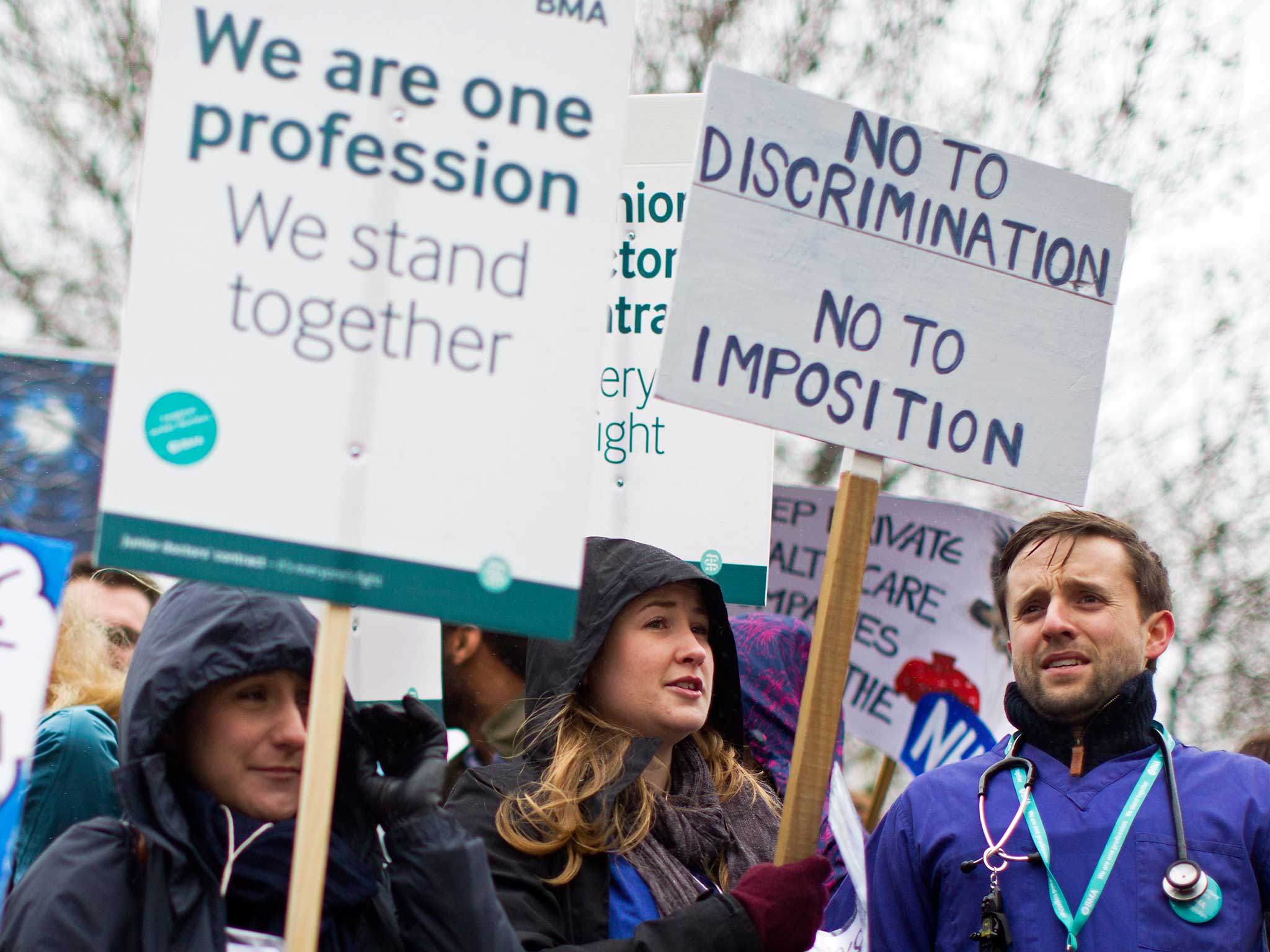Junior doctors' strike will be safe for patients, senior doctors say in letter to David Cameron and Jeremy Hunt
The letter accuses the Government of leaving junior doctors with no choice but to take industrial action

More than 2,500 consultants, GPs and other senior doctors have said that next week’s all-out strike action by junior doctors will be safe for patients.
The letter, which will be delivered to David Cameron and Jeremy Hunt, accuses the Government of leaving junior doctors with no choice but to take industrial action over the imposition of their new contracts.
It states that “despite much publicity to the contrary” senior doctors would be capable of keeping the NHS “safe for our patients” when junior doctors walkout between 8am and 5pm on Tuesday and Wednesday.
They warn that plans to force through the new contract, which will require junior doctors to work more weekends for less pay on Saturdays, represented an attempt to deliver a ‘seven-day NHS’ “without funding or workforce planning”.
“Stretching an already limited resource across seven days does not improve patient care, rather diminishes it, and will also result in the demoralisation of an entire generation of junior doctors,” the letter states.
“We are keen to work with you to improve patient care, but this will come with clinical engagement, not disempowerment…The emergency walk out demonstrates the desperation of our trainees, who feel they are being left with no other choice.”
The signatories include former chair of the Royal College of GPs, Dr Clare Gerada and other senior medics including leading surgeon Professor Nigel Standfield and vice president of the Royal College of Paediatrics and Child Health Dr Andrew Long.
They add: “We, the senior specialists, will keep the NHS safe for our patients and your constituents, despite much publicity to the contrary. Not only are we duty-bound to do so, but we will gladly provide this emergency cover to ensure that the Juniors can take this action with the complete confidence that their patients are safe.”
A second letter, signed by 150 consultants and GPs at the world-renowned Addenbrookes Hospital in Cambridge, calls the new contract “unsafe, unworkable and unfair”, adding that patients would continue to receive “safe, appropriate care” during the strike.
“This care will be given by consultants, other specialist doctors and GPs who, along with our other colleagues such as nurses, physiotherapists, occupational therapists, and phlebotomists, will be working normally,” they say.
The Department of Health called the latest strike action “extreme and irresponsible” and repeated its criticism of the BMA for failing to negotiate over Saturday pay. More than 12,700 operations have been cancelled as a result of the new industrial action. Senior figures including NHS England’s medical director Professor Sir Bruce Keogh have warned that an all-out strike could “irreparably damage trust” in medics.
Junior doctors say their dispute is about more than pay, and warn that the new contract being forced upon them, which requires more weekend working for less pay on Saturday, will lead to the current workforce being overstretched, leading to further shortages on wards during the working week.
A Department of Health spokesperson said the Government had “continually sought a negotiated solution over three years of talks”.
“If the doctors' union had agreed to negotiate on that as they promised to do through ACAS in November, we'd have a negotiated agreement by now. Instead, we had no choice but to proceed with proposals recommended and supported by NHS leaders - which were 90 per cent agreed with the BMA,” the spokesperson said.
Join our commenting forum
Join thought-provoking conversations, follow other Independent readers and see their replies
Comments